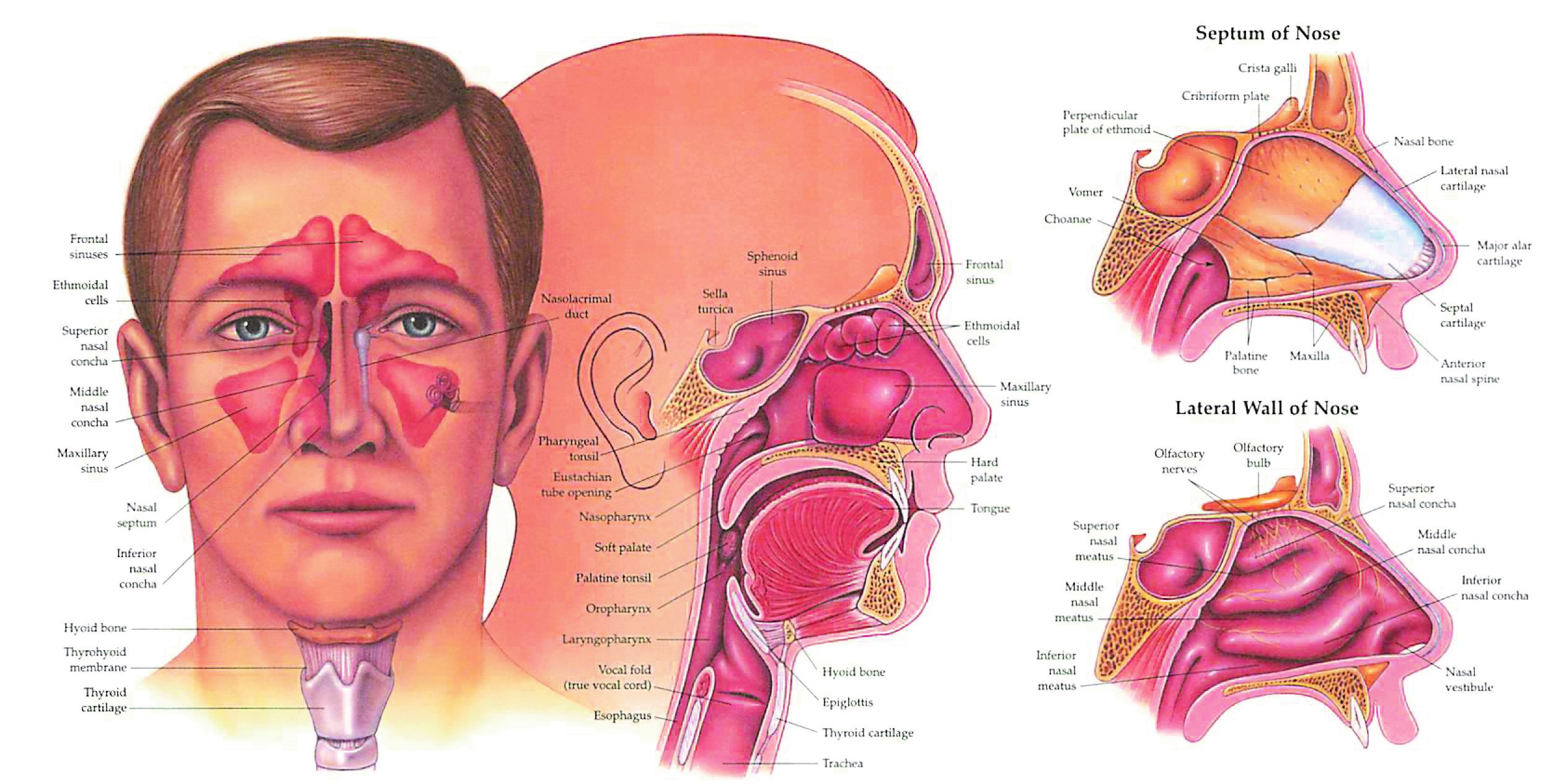Sinus

Have you ever felt like you had a cold that wouldn’t go away? If it hangs around for more than 10 days, or gets worse after it starts getting better, there’s a good chance you have sinusitis, a condition where infection or inflammation affects the sinuses.
What Are the Sinuses?
Sinuses are hollow spaces in the bones around the nose that connect to the nose through small, narrow channels. The sinuses stay healthy when the channels are open, which allows air from the nose to enter the sinuses and mucus made in the sinuses to drain into the nose.
What is Sinusitis?
Sinusitis affects about 1 in 8 adults annually and generally occurs when viruses or bacteria infect the sinuses (often during a cold) and begin to multiply. Part of the body’s reaction to the infection causes the sinus lining to swell, blocking the channels that drain the sinuses. This causes mucus and pus to fill up the nose and sinus cavities.
Different Types of Sinusitis
- Acute Sinusitis: 4 weeks of cloudy or colored (not clear) drainage from the nose plus one or both of the following: a stuffy, congested, or blocked nose or pain, pressure or fullness in the face, head, or around the eyes.
- Acute Viral Sinusitis: is likely if you have been sick less than 10 days and are not getting worse.
- Acute Bacterial Sinusitis: is likely when you do not improve at all within 10 days of getting sick or when you get worse within 10 days after beginning to get better.
- Chronic Sinusitis: Lasts for 12 weeks or longer and is usually caused by prolonged inflammation, rather than a longstanding infection.
Do I Need Surgery for my Sinusitis?
Surgery for the sinuses is done when the symptoms can’t be controlled with medications and other treatments. The most common type of surgery for the sinuses is called endoscopic sinus surgery, because a pencil-sized scope (“endoscope”) is used to see inside the nose and sinuses and guide the surgery. The purpose of the surgery is to widen the natural drainage pathways between the sinuses and the nose, allowing mucus to get out of the sinuses and air to get in. Medications that are delivered to the surface of the nose and sinuses, like sprays and irrigations, can get into the sinuses better after surgery as well.

Please contact us with any questions or concerns!
 Digital Marketing Agency
Digital Marketing Agency